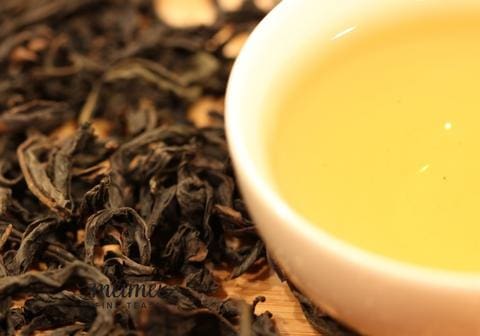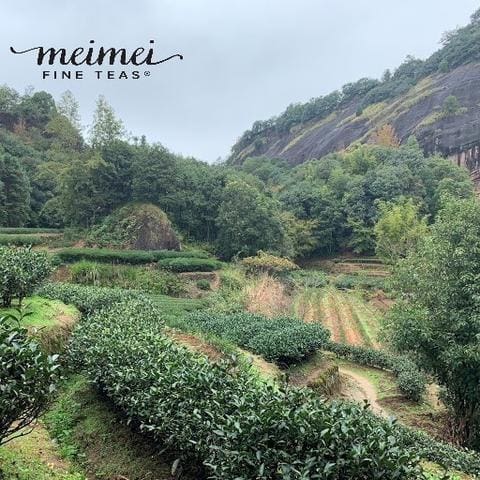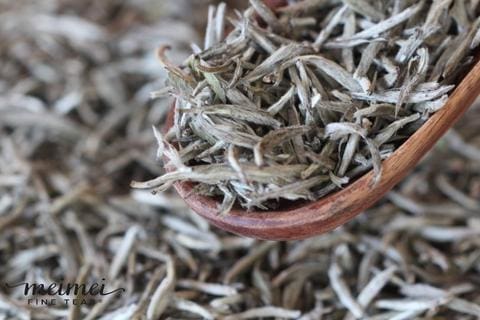
Caffeine and Your Tea: Myths and Misconceptions
There are a surprisingly large number of people with caffeine sensitivities. Even when exposed to low amounts, these people will experience the effects from it, suffering from sleep disturbances or increased anxiety. In extreme cases, some might even react to decaffeinated coffee because it still contains minute amounts.

Since less is widely known about tea and this topic, those with caffeine sensitivity will often either stay away from tea no matter how much it interests them or else severely restrict their intake by drinking earlier in the day or not resteeping. But with the rare exception of extreme caffeine sensitivity, these choices can be unfortunate, depriving potential tea drinkers from their enjoyment due to misunderstanding.
We’re going to sort through some of the popular myths and misconceptions so that those worried about caffeine can make better informed decisions.
Myth #1: Caffeine is Highest in Black Tea and Lowest in Green or White Teas
Multiple analyses of the caffeine content in varying tea types have revealed that it’s a little all over the place but still close in range. We’ve found, for instance, that caffeine in white tea can be greater than black tea (but also vice versa), green tea from one location can be slightly higher than from another location, and sometimes Wuyi oolongs have lower amounts of caffeine than all of them.
Without knowing exactly what’s in your cup, you should instead think about the average caffeine range between all tea types: 20–30mg / cup. Whether it’s black, green, white, or oolong, there’s a strong chance that the total amount falls within that range.
Above all, the total amount of caffeine that is released into the water is largely determined by the total amount of time you infuse your tea leaves and the total leaf volume. The longer you steep your leaves and the more leaves you use, the more caffeine you release.

Myth #2: The Caffeine in Tea can cause the Jitters
Most tea types contain an amino acid known as “L-theanine,” an amino acid that promotes a sense of calm and well-being (similar to what is observed during meditation). It is theanine that helps keep the “caffeine jitters” at bay when drinking tea, as opposed to coffee.
But this doesn’t mean that the caffeine will have no effect. Rather, because theanine and caffeine are complementary, you’ll discover a different kind of alertness. Instead of the anxious, wiry feeling that a cup of coffee creates, tea helps you feel energetic and focused without the jitters.
There are some exceptions.
One is pu’erh, which contains almost no theanine, and another is black tea, which has only very small amounts. This likely explains why people might feel “tea drunk” on pu’erh or why some believe that black tea has more caffeine than other types. With less theanine, you’ll be more likely to experience other effects from tea.
Myth #3: If I have a Cup of Tea in the Afternoon, I won’t be able to Sleep
For comparison, your average cup of coffee contains around 150–160mg of caffeine, and your “energy” drinks or espresso shots anywhere from 75–250mg. Even decaffeinated coffee contains around 5–6 mg of trace amounts of caffeine (similar to a cup of hot cocoa).

This means that your cup of tea has approximately 10–20% of the caffeine in your cup of coffee and is equivalent to a few hot cocoas. For most healthy adults, this is a negligible amount, even unlikely to affect sleep quality. But for a small set of people who are caffeine-sensitive and for children, even this small amount can feel like a cup of coffee.
Fortunately, there are a few things to keep in mind.
One, the amount of caffeine in a cup of tea isn’t high enough to affect the sleep of most people. If you’re still worried, then no matter what type of person you are, as long as you are drinking your cup of tea more than twelve hours before bedtime (such as early morning), you should be fine.
Two, your first infusion will almost always contain the highest amount of caffeine. If you’re worried about caffeine sensitivity, this should not discourage you from enjoying your second or third infusions. For extreme cases of caffeine sensitivity, you can even consider tossing out your first infusion.
Be assured that your cups of tea, no matter the type, have far less caffeine than a cup of coffee, and in most cases, the theanine will prevent you from feeling wired and anxious.
